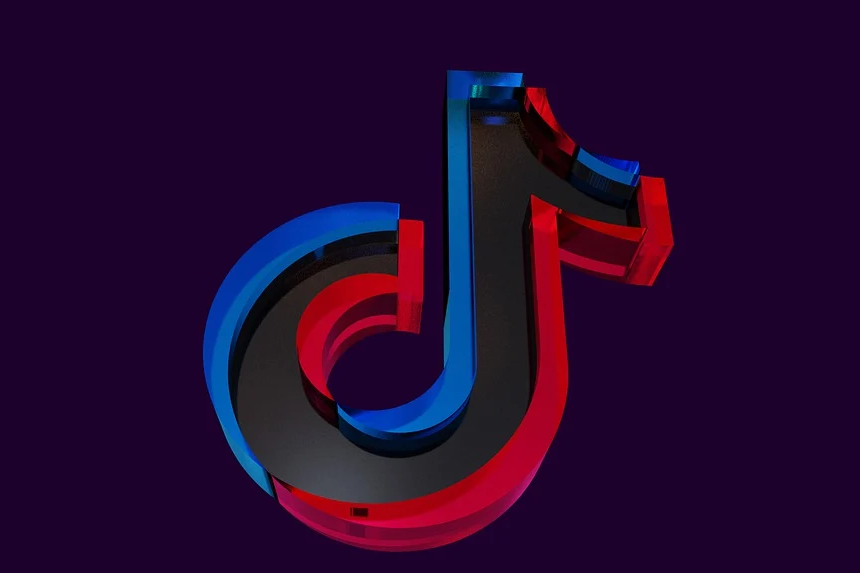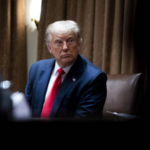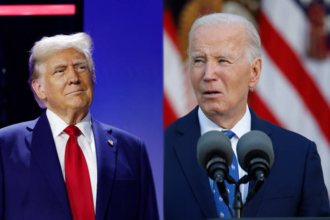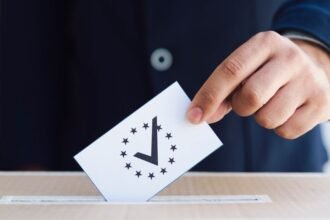Following President-elect Donald Trump’s surprising promise to postpone the implementation of a new TikTok ban, the well-known video-sharing app TikTok restored its services to 170 million US users on Sunday. TikTok went silent for US users on Saturday night after the law was enacted, citing national security concerns.
- Why Did Trump Change His Mind About the Ban?
- What Effects Does the TikTok Ban Have on the Law?
- In what ways has Trump's stance strained relations within his party?
- Is It Legal for Trump to Delay the Ban?
- What Does TikTok's Future Hold for Tech Platforms?
- What Makes TikTok Such an Effective Political Instrument?
“We’re in the process of restoring service,” TikTok said in a statement following the weekend. The app returned to the internet shortly after that. The business praised Trump directly in a popup message for “providing the necessary clarity and assurance.”
Why Did Trump Change His Mind About the Ban?
Trump’s decision was a dramatic departure from his prior support for the TikTok ban. He said on his personal social media site, Truth Social: “I’m pleading with businesses to stop TikTok from being dark! To reach an agreement to safeguard our national security, I will issue an executive order on Monday to prolong the time before the law’s prohibitions go into effect.
Trump seems to have changed his mind about TikTok, which he formerly described as a menace. He asserted that the app was crucial to his presidential campaign, reaching younger people and generating billions of views for his material.
According to reports, Shou Chew, the CEO of TikTok, will be present at Trump’s inauguration on Monday.
What Effects Does the TikTok Ban Have on the Law?
With bipartisan support in Congress, the US government approved a law outlawing TikTok in April 2024. ByteDance, the Chinese parent firm of TikTok, was forced to sell its US operations or risk being completely banned. Following ByteDance’s noncompliance, the Supreme Court unanimously upheld the law last week and became operative on Sunday.
Before the court, TikTok claimed that the statute violated the right to free speech, but the justices dismissed this argument.
According to Senator Marco Rubio, Trump’s choice for Secretary of State, “TikTok extended the Chinese Communist Party’s power and influence into our own nation, right under our noses” when the law was passed last year. But in response to a question concerning Trump’s attempts to postpone the TikTok ban, Rubio said, “If I’m confirmed as Secretary of State, I’ll work for the president.”
Trump’s legal route to intervene was convoluted by Supreme Court decisions. During the court arguments, Solicitor General Elizabeth Prelogar stated, “An executive order cannot change the law retroactively.” Justice Sonia Sotomayor agreed: “Whatever the new president does doesn’t change that reality for these companies.”
In what ways has Trump's stance strained relations within his party?
There is conflict inside Trump’s party as a result of his intervention. The Senate Intelligence Committee Chair, Senator Tom Cotton of Arkansas, expressed strong opposition, stating: “Any company that hosts, distributes, services, or otherwise facilitates communist-controlled TikTok could face hundreds of billions of dollars in ruinous liability under the law, not just from DOJ, but also under securities law, shareholder lawsuits, and state AGs.”
Even while Trump’s executive order permits TikTok to operate nationwide, states like Florida and Texas are suing the company, raising the possibility of local bans.
Is It Legal for Trump to Delay the Ban?
Although there is still disagreement among legal experts on Trump’s ability to postpone the TikTok ban, others believe the president may be able to use a legislative provision that permits a 90-day delay. According to one legal expert, “If the president can demonstrate significant progress in resolving national security issues, the law contains a mechanism for delay.” However, it’s unclear if those requirements have been fulfilled.
They said, “The best thing Trump could do is work with Congress, not risk violating the law or leaving questions unanswered.”
What Does TikTok's Future Hold for Tech Platforms?
Even while TikTok is now accessible to its current user base, it is still uncertain how it will do on popular marketplaces like Google Play and the Apple App Store. In anticipation of the TikTok ban, both businesses had taken TikTok off their platforms, and there are still unanswered legal questions.
Trump attempted to reassure these businesses in a different article on Truth Social by pledging to protect them from legal action for their support of TikTok.
“The order will also confirm that there will be no liability for any company that helped keep TikTok from going dark before my order,” Trump tweeted.
Still, there is scepticism. A lawyer said, “I don’t know that we’re going to know a whole lot more until we see that executive order.”
What Makes TikTok Such an Effective Political Instrument?
The abrupt termination of the app highlighted its impact, particularly in the political sphere. TikTok became a potent weapon for reaching younger voters during the previous year’s elections, causing what many experts refer to as a generational divide in American politics.
Trump made the final decision after the Biden administration decided not to implement the TikTok ban. Now that TikTok’s survival is at stake, Trump has to negotiate a political and legal minefield to keep his word.
In a statement released on Sunday, TikTok stated, “We appreciate the clarity that the president-elect provided.” “We remain committed to working on a long-term solution that keeps TikTok in the United States.”








